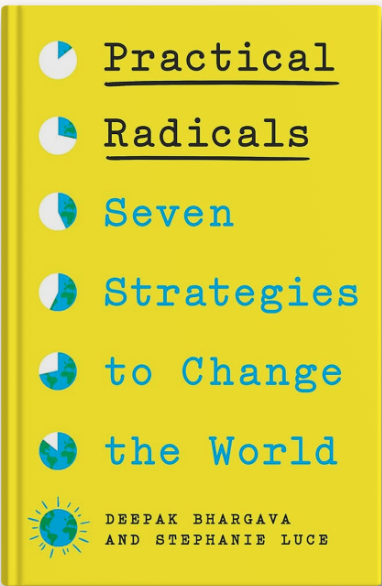
How do underdogs, facing far stronger opponents, sometimes win? In the tradition of Saul Alinsky’s Rules for Radicals and Sun Tzu’s The Art of War, Deepak Bhargava and Stephanie Luce’s Practical Radicals offers winning strategies, history, and theory for a new generation of activists.
Based on interviews with leading organizers, this groundbreaking book describes seven strategies to bring about transformative change. It incorporates stories of organizations and movements that have won, including Make the Road NY, the St. Paul Federation of Educators, the welfare rights movement, the Working Families Party, New Georgia Project, Occupy Wall Street, 350.org, the Fight for 15, and Gay Men’s Health Crisis. Two overarching case studies anchor the book: the brilliant techniques used by enslaved people and their allies to end slavery, and the sinister but effective ways elites imposed our current system.
Practical Radicals offers insights on strategy used by business, military, and political elites, addresses the challenges of overcoming conflict within organizations and movements, and concludes with a discussion of how our movements must adapt to meet new challenges in the twenty-first century.
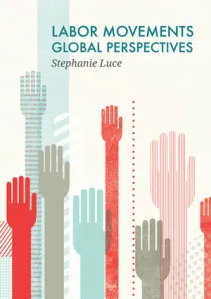
Labor Movements: Global Perspectives provides a critical evaluation of labor unions both in the U.S. and globally, examining the factors that have led to the decline of union power and arguing that, despite their challenges, unions still have a vital part to play in the global economy. Stephanie Luce explores the potential sources of power that unions might have, and emerging new strategies and directions for the growth of global labor movements, such as unions, worker centers, informal sector organizations, and worker co-operatives, helping workers resist the impacts of neoliberalism. She shows that unions may in fact be more relevant now than ever.
This important assessment of labor movements in the global economy will be required reading for advanced undergraduates and graduate students of labor studies, political and economic sociology, the sociology of work, and social movements.
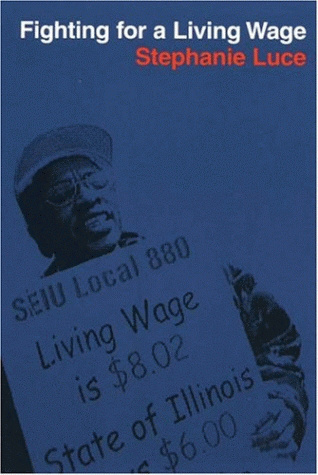
The living wage movement is considered by many to be the most interesting grassroots enterprise to emerge since the civil rights movement. This book is not a simple celebration of the living wage movement, but a critical evaluation that assesses the strengths and shortcomings of various campaigns and their resulting implementation. Some cities have consistently enforced their ordinances after passage. In other communities implementation is weak or nonexistent, and thousands of workers do not benefit from laws designed to ensure that they are paid a living wage. Fighting for a Living Wage is the first serious examination of the reasons for implementation failure, as well as an analysis of the factors that lead to success. Activists can play a significant role in implementing and monitoring living wage policies, even where governments oppose the movement or are reluctant to enforce the laws in question. The nature of the campaign to formulate and pass policy can influence the likelihood of successful implementation. Surprisingly, the chances for thorough enforcement are greater in communities where living wage campaigns caused more, not less, conflict.
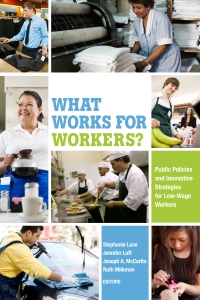
The majority of new jobs created in the United States today are low-wage jobs, and a fourth of the labor force earns no more than poverty-level wages. Policymakers and citizens alike agree that declining real wages and constrained spending among such a large segment of workers imperil economic prosperity and living standards for all Americans. Though many policies to assist low-wage workers have been proposed, there is little agreement across the political spectrum about which policies actually reduce poverty and raise income among the working poor. What Works for Workers provides a comprehensive analysis of policy measures designed to address the widening income gap in the United States. What Works for Workers?: Public Policies and Innovative Strategies for Low-Wage Workers is edited by Stephanie Luce, Jennifer Luff, Joseph A. McCartin and Ruth Milkman, Featuring contributions from an eminent group of social scientists, What Works for Workers evaluates the most high-profile strategies for poverty reduction, including innovative “living wage” ordinances, education programs for African American youth, and better regulation of labor laws pertaining to immigrants. The contributors delve into an extensive body of scholarship on low-wage work to reveal a number of surprising findings.
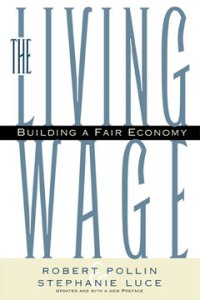
With campaigns for a living wage sweeping the country, here is an accessible and provocative argument for a national “living wage.” Hailed as “the bible of the living wage movement,” The Living Wage shows how living-wage proposals are affordable for both cities and employers, and reveals how they can play an important role in reversing the twenty-five-year decline in wages experienced by most working people in America. Written by leading experts, The Living Wage is a realistic and accessible examination of this vital—and growing—movement for economic justice in the United States.
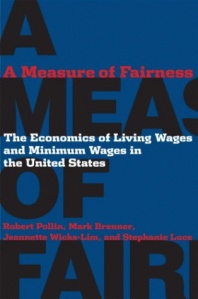
In early 2007, there were approximately 140 living wage ordinances in place throughout the United States. Communities around the country frequently debate new proposals of this sort. Additionally, as a result of ballot initiatives, twenty-nine states and the District of Columbia, representing nearly 70 percent of the total U.S. population, maintain minimum wage standards above those set by the federal minimum wage. In A Measure of Fairness, Robert Pollin, Mark Brenner, Jeannette Wicks-Lim, and Stephanie Luce assess how well living wage and minimum wage regulations in the United States serve the workers they are intended to help. Opponents of such measures assert that when faced with mandated increases in labor costs, businesses will either lay off workers, hire fewer low-wage employees in the future, replace low-credentialed workers with those having better qualifications or, finally, even relocate to avoid facing the increased costs being imposed on them.
